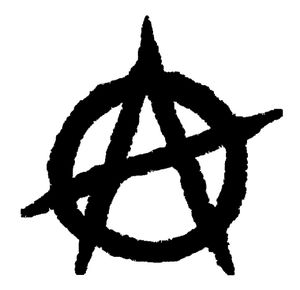Anarchisme
From Liberpédia
Definition
- The philosophy of a new social order based on liberty unrestricted by man-made law; the theory that all forms of government rest on violence, and are therefore wrong and harmful, as well as unnecessary.
- ANARCHISM, the name given to a principle or theory of life and conduct under which society is conceived without government - harmony in such a society being obtained, not by submission to law, or by obedience to any authority, but by free agreements concluded between the various groups, territorial and professional, freely constituted for the sake of production and consumption, as also for the satisfaction of the infinite variety of needs and aspirations of a civilized being. In a society developed on these lines, the voluntary associations which already now begin to cover all the fields of human activity would take a still greater extension so as to substitute themselves for the state in all its functions.
- Piotr Kropotkin, Encyclopaedia Britannica, 1910[1]
Famous anarchists
- William Godwin
- Max Stirner
- Proudhon
- Emma Goldman
- Gandhi
- Tolstoy
- Mikhail Bakounin
- Piotr Kropotkin
- Anselme Bellagarigue
- Murray N. Rothbard
- Albert J. Nock
- Hans-Hermann Hoppe
- Wendy McElroy
- Lysander Spooner (1808-1887)
- Henry David Thoreau (1817-1862)
- Benjamin Tucker (1854-1939)

